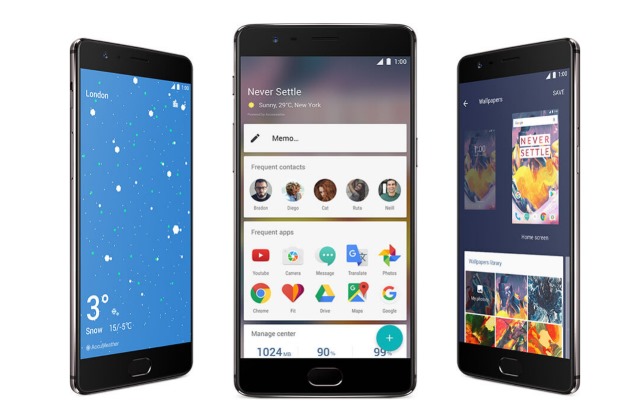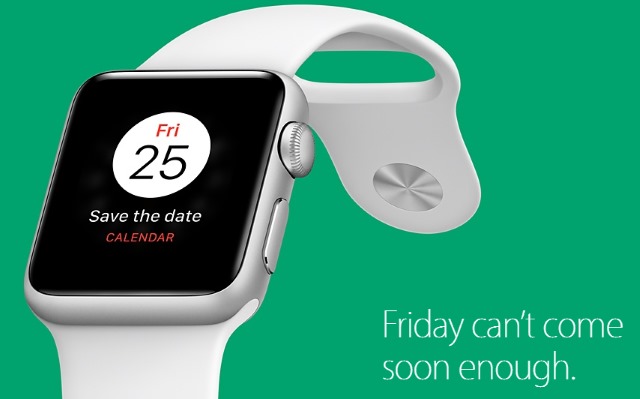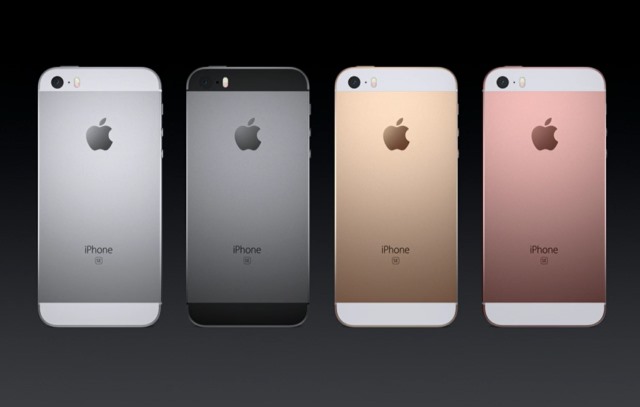
Things to keep an eye on in the eCommerce space
ECommerce has come a long way in recent years. We’ve all heard about how online shopping was responsible for the death of the high street, but eCommerce is now about much more than the likes of Amazon and eBay. As an industry, eCommerce is expected to be worth $6.7 trillion by 2020 and now encompasses relatively recent technological developments such as mobile payments and cryptocurrencies.
The convenience offered by eCommerce is proving hugely popular with consumers and so it is not surprising that some of the tech industry’s biggest players are looking to dominate the market. However, eCommerce is becoming increasingly diverse, so there are plenty of options for businesses that are looking to make inroads, whether you specialize in retail, security, or something else.

Watch the Macy's Thanksgiving Day Parade 360-degree YouTube live video stream online here!
Thanksgiving is coming this Thursday, meaning friends, family, food, and football. Around the USA, people will be chowing-down on Turkey, stuffing, and all the other popular food side-dishes too. Another popular Thanksgiving tradition is watching The Macy's Thanksgiving Day Parade on TV (if you cannot be there in person). If you aren't familiar, it is a New York City parade featuring many giant inflatable cartoon characters, plus floats carrying celebrities.
Unfortunately, not everyone enjoys watching the parade, leading to fights over the television. This year, however, a TV is not required. If you have an internet-connected device, you can watch it on YouTube in glorious 360 degrees for the first time ever. Best of all, BetaNews has the video ready for you below.

Symantec acquires LifeLock for $2.3bn
Security firm Symantec is buying US identity theft protection services company LifeLock, Reuters has reported. The deal is worth $2.3 billion (£1.87bn), and it is claimed that this is Symantec’s way of amping up sales at its Norton cybersecurity unit.
According to the report, Norton is still profitable, but its sales are in decline for one simple reason -- mobile. Norton comes preloaded on a large number of traditional computers, but people are turning more towards mobile devices.

Satechi unveils elegant Smart Charging Stand for smartphones and wearables
Wearables are all the rage nowadays, and I expect them to be very popular holiday gifts this year. While Microsoft has killed its Band, there are still many other great options such as Apple Watch, Fitbit, and more.
Unfortunately, a smartwatch or other wearable is yet another thing to charge. As a result, many people have wires all over the place, leading to messy nightstands and kitchen counters. Luckily, a good charging station can make things much more tidy. Today, Satechi unveils its Smart Charging Stand for smartphones and wearables. This elegant product will not only reduce clutter, but offer much convenience too.

OnePlus 3T now available in US and Canada
After just five months on the market, the excellent OnePlus 3 is no more. But, OnePlus is not without a "flagship killer", as, in its place, it has introduced an updated model that features some welcome improvements while still maintaining an attractive price tag. And, starting today, the OnePlus 3T is officially available for purchase.
The latest flagship killer is released in US and Canada first, and it will reach Europe on November 28. Today, it is available in both storage options but only in a single color, as the Soft Gold trim will be offered later down the road.

Druva launches pay-as-you go disaster recovery on AWS
Disaster recovery is something that all businesses need but few like to contemplate. It's tempting therefore to think that storing data in the cloud makes the problem go away, but of course it doesn't.
You need to look after your data wherever it's stored and to help AWS users with this, data protection specialist Druva is launching its Phoenix cloud-native solution for backup, archive and disaster recovery on the AWS Marketplace.

NirSoft releases GUIPropView
NirSoft has released GUIPropView, a developer-oriented tool which displays extensive details on your system’s open windows.
The program lists all top-level windows, along with their handle, title, state (normal/ maximized/ minimized), visibility, position, size, class name, style, process ID, thread ID, parent handle, process name, instance name, class module filename, and more.

OneDrive for Business accounts used to spread malware
Malware purveyors have been making use of cloud services for some time, sending cloud-storage links that host malware to victims is an efficient way for cyber criminals to operate.
In a new twist to the technique, Forcepoint Security Labs has discovered that cybercriminals have been utilizing compromised Microsoft OneDrive for Business accounts to host malware since at least August of this year.

Apple has some Black Friday special offers for you -- but they're secret for now!
Black Friday is mere days away, and shoppers are preparing to hit the streets and online stores. Big names like Microsoft have already revealed some of the bargains you can snap up, and this year Apple is getting in on the action too.
Apple has traditionally turned its nose up at Black Friday, but the lure of shifting a few extra units by lopping off a few dollars seems to have been too great this year. The company's Black Friday special offer site is up and running, but it's a bit of a tease at the moment.

56 percent of Brits want to move to the Moon
Whether it's a result of Brexit or they're simply sick of the weather, a new survey reveals that 56 percent of British people would like to move to the Moon. If money were no object 19 percent also say they would buy a holiday home on Mars.
Product development company Arconic surveyed 1,000 people in the UK to find out how they thought technology would develop over the next 50 years.

Fedora 25 now available -- makes it easier to switch from Windows 10 or macOS to Linux
After the release of both alpha and beta versions, Fedora 25 is officially here and ready for production machines. If you aren't familiar with the popular Linux-based operating system, please know that it is the distribution of choice for the founder of the Linux kernel, Linus Torvalds.
One of the most endearing qualities of Fedora is its focus on only offering truly free open source software. Also, you can always count on a very modern version of the Linux kernel being available. Despite having very up-to-date packages, it is always very stable too. My favorite aspect, however, is the commitment to the GNOME desktop environment; other DEs are available, though.

The first official 64-bit OS for Raspberry Pi arrives -- but there's a catch
Raspberry Pi 3 Model B is the first 64-bit version of the popular barebones computer, yet despite its processor upgrade, there isn’t an official 64-bit OS available for it. That’s because the Raspberry Pi Foundation has focused instead on making its Raspbian OS run on all generations of Pi.
However, the good news is Pi 3 owners can now take advantage of the full capabilities of their device, thanks to SUSE which has released a version of its 64-bit Linux Enterprise Server product that supports Raspberry Pi 3.

People don't understand how they get infected with malware
A new Kaspersky Lab report says a lot of us end up with viruses on our machines, but we just don't know how. But, in fact, we very much do. Here are the report's figures.
Almost half (42 percent) of internet users have either come across or have been targeted by malware online. A fifth of those (22 percent) have fallen victim to it, and almost a third (29 percent) have "no idea how it ended up on their device".

NHS partnership with DeepMind puts Google AI in charge of sharing patient data
Google is no stranger to working with user data, but its latest partnership with the National Health Service sees the company entering unchartered waters. Having already been granted access to the records of more than 1.6 million patients in London, Google's DeepMind will be used by the NHS to alert medical staff to the condition of people under their care.
Given Google's track record of using data gathered from its users as part of its ad business, there are understandable concerns from privacy groups about the company's involvement. But data shared with DeepMind will not make its way to Google itself, and will also be encrypted as an extra level of security. But is artificial intelligence really the future of medicine?

iOS bug means glitchy videos can kill any iPhone or iPad
iPhone users are familiar with strange bugs that crop up from time to time that can, temporarily at least, kill their cell phone. We've seen specially-crafted text messages crash iPhones, and now there is a video which can render Apple smartphones useless -- until they are restarted, that is.
The video takes advantage of a bug in iOS relating to the handling of media files, and it appears to affect both iPhones and iPads. The model of phone or tablet doesn’t seem to matter, and the problem affects iOS 10 and goes back as far as iOS 5. So, if you feel like pranking a friend -- or you're just curious -- here's how to kill an iOS device.


